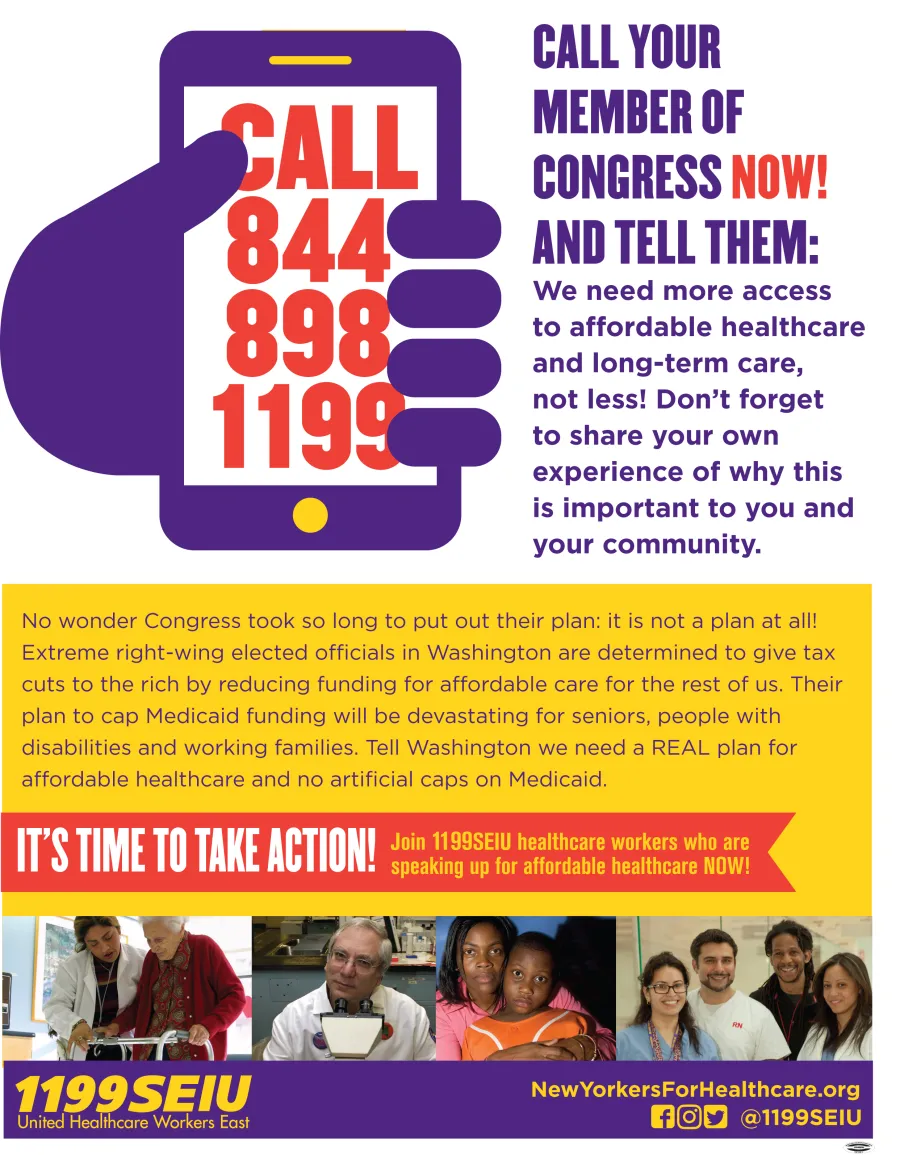
As you have likely heard, the Republican leadership in the House of Representatives yesterday released legislation to repeal and replace the Affordable Care Act. As expected, it is a very bad deal for New York and working-class and poor Americans.
There are votes scheduled in House committees this week despite the fact that there is not yet a Congressional Budget Office score detailing how many people will lose health insurance if the legislation is enacted.
Key provisions of House Republican proposal:
Ends Medicaid expansion. Ends the enhanced Federal payments for any new Medicaid enrollee beginning January 1st, 2020, significantly reducing the dollars available to states and forcing them to raise billions of dollars from new taxes or drop millions of people from the rolls. Also eliminates increases in matching percentages that were scheduled for January 1st, 2018, costing New York State dollars in this fiscal year.
Sets the stage for deep cuts to funding for Medicaid through per-capita caps. The legislation ends the entitlement to Medicaid and caps to Medicaid funding. While the cap is initially based on current spending, it cuts billions of dollars in future years by controlling growth. It also makes it easy for Congress to make additional cuts in any budget just by tweaking the formula. The Federal government will save hundreds of billions and force Governors and Legislatures to make the hard decisions about cuts to providers, benefits or eligibility.
Restricts access to Medicaid. The bill further restricts access to Medicaid by requiring recertification every six months instead of once a year, eliminating retroactive eligibility and requiring documentation of immigration status.
Eliminates support for the Basic Health Plan. By eliminating the Affordable Care Act’s provisions for cost-sharing subsidies, this would end a program that 600,000 New Yorkers depend on and result in another billion-dollar loss to the State budget.
Reduces tax credits making coverage less affordable. Put coverage out of reach for millions of moderate-income families by reducing the size of the tax credits that make coverage on the health care exchanges affordable. Tax credits would no longer be based on income, but only on age. A recent analysis from Kaiser Family Foundation found that many would pay thousands more.
Higher premiums and out-of-pocket costs. For those who keep coverage on the exchanges, premiums and out-of-pocket costs will rise.
Undermines protections for those with pre-existing conditions. If someone has a gap in coverage, even for a couple of months, they would be forced to pay a hefty penalty for the next year.
Allows more money to be put tax-free into health savings accounts. This reduces tax liability for the wealthy but doesn’t make health care more affordable or accessible for those living paycheck to paycheck.
Defunds Planned Parenthood for one year. This risks cutting off essential care from millions of patients who depend on Planned Parenthood for their care.
Punishes hospitals in states that expanded Medicaid. The legislation postpones the cuts in payments to hospitals for care for the uninsured, but only for states that refused to expand Medicaid. Those states that expanded Medicaid will see their cuts increase to achieve the same amount of savings.
Eliminates penalties for employers for not providing health coverage. Back to the uneven playing field which punishes responsible employers.
Gives big tax cuts to the wealth and corporations. The plan uses the savings from the cuts they are making to Medicaid and to tax credits for working families to give big tax cuts for millionaires, pharma, and insurers and even health insurance company CEOs.
